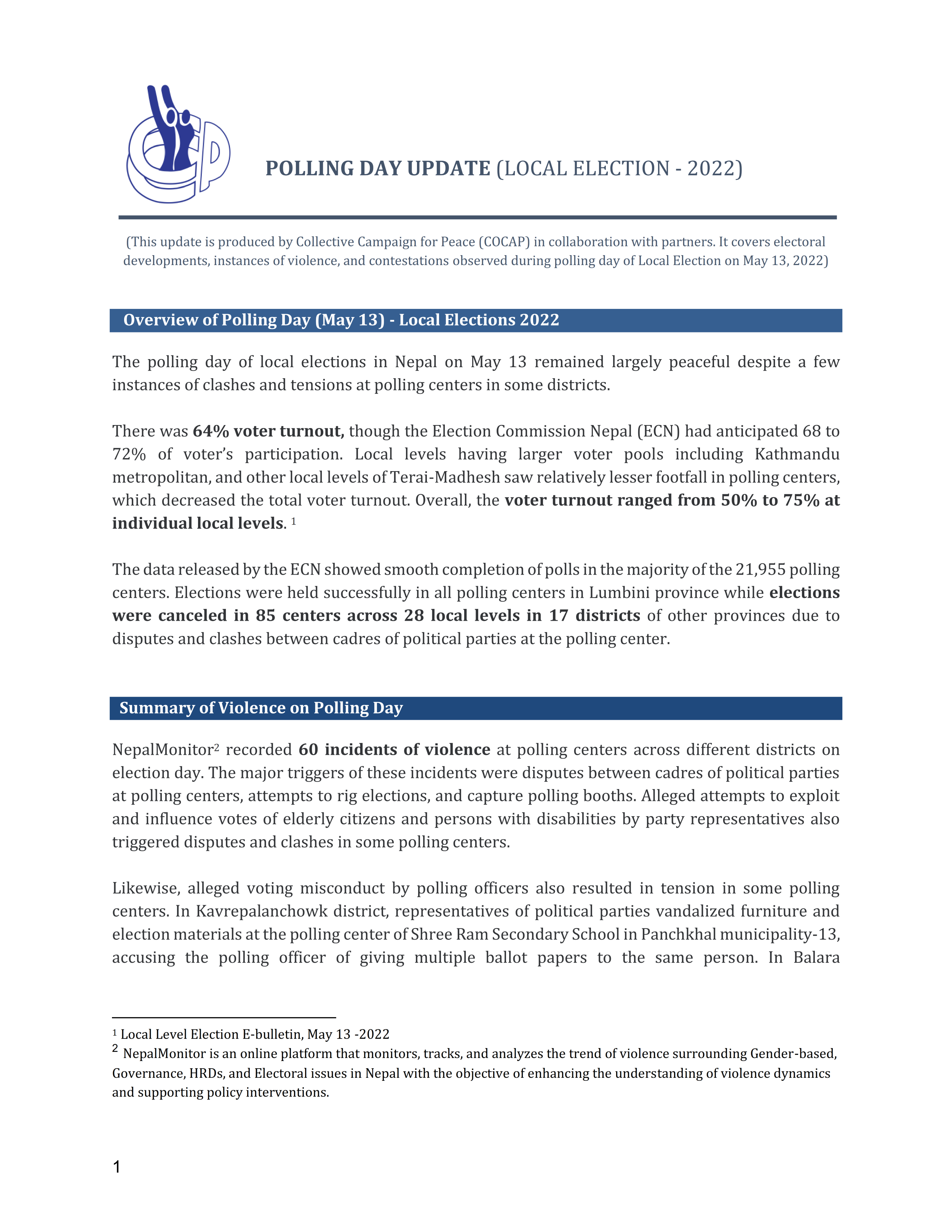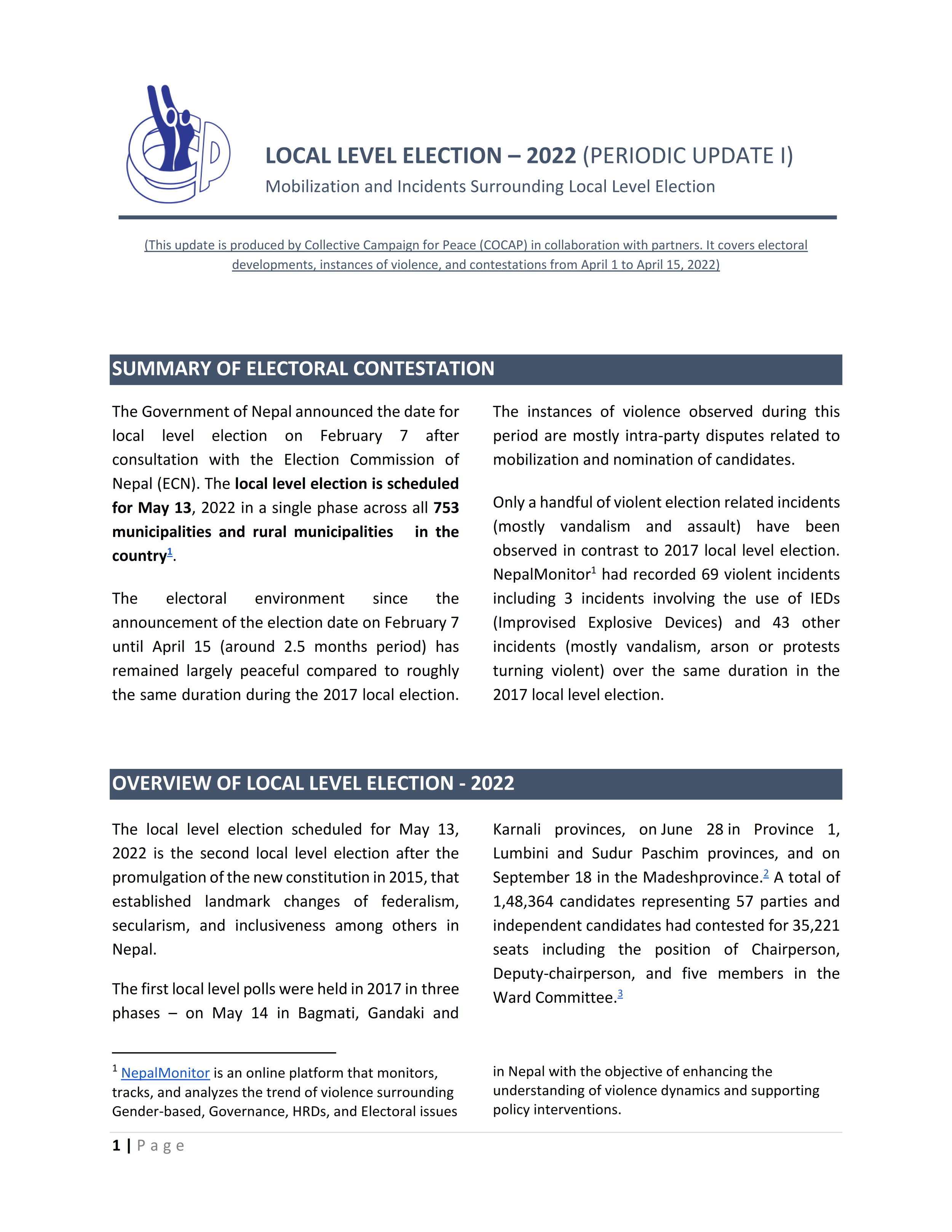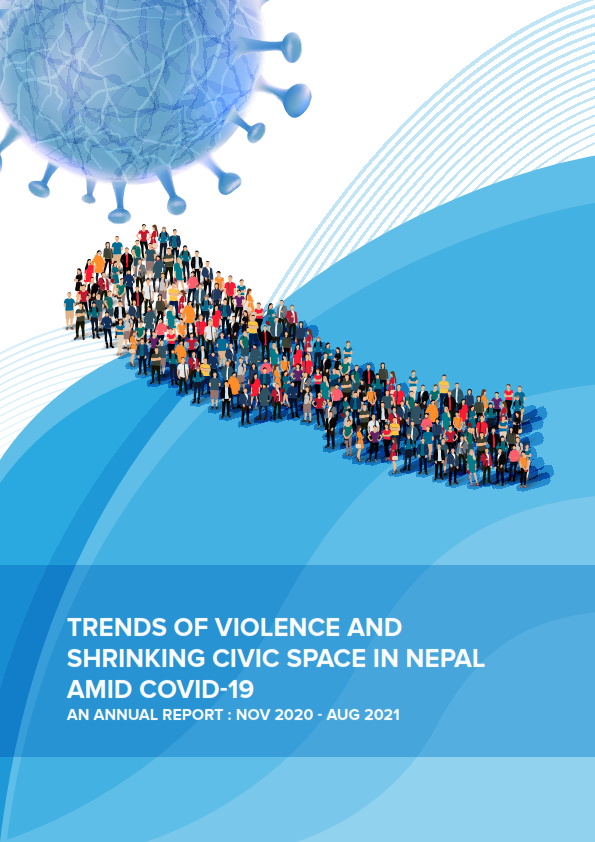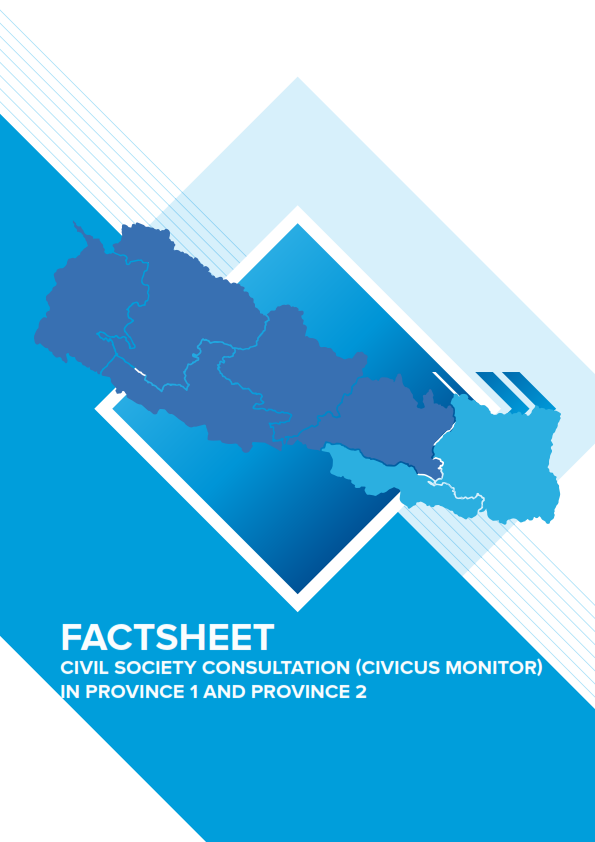Incident Reports
Government introduces new human rights action plan
2015-01-08
The government has introduced the fourth five-year national action plan on human rights 2014-2019, which incorporates six new focal areas.
The new thematic areas--education, health, nutrition and population, and employment-- were picked by the Prime Minister's Office after a series of discussions conducted across the country. Previously, the themes were identified by the ministries, who were also responsible for the implementation of the action plan.
Chief Secretary Leela Mani Poudyal said due to a lack of separate coordination, budget, and commitment, the past three action plan s could not deliver the desired results.
"From this time onwards, the concerned ministries shall make the arrangement for budget allocation to implement the programs included in the action plan," said Poudyal.
Nepal started to formulate and implement the National Human Rights Action Plan from 2005 in line with the Universal Declaration of Human Rights, international conventions on human rights to which Nepal is a party.
The country has been prioritizing human rights while formulating periodic development plans. Similarly, separate mechanisms have been established to deal with human rights in all three security agencies, while human rights education has been made mandatory in training courses for the security agencies.
Despite the country's commitment to promote and protect human rights, the past three national human rights action plan s have not been implemented effectively due to various shortcomings.
"The overall performance of our implementation rate is at around 50-60 percent," said Poudyal. "We hope to take a lesson from the past and improve our performance this time."
As of July 2014, departmental actions were taken against 856 individuals, including 177 from the Nepal Army, 622 from Nepal Police, 56 from the Armed Police Force, and one civil servant, for violation of human rights.
Some of the areas focused on by the action plan are culture, legal reforms, environment, women, persons with disabilities, senior citizens, sexual minorities, marginalized communities, food security, and transitional justice.
Priorities have also been given to safe housing, social service, and security, drinking water, sanitation, electricity, and consumption of natural resources, among others. Similarly, the action plan has also emphasized the execution of Supreme Court judgments and recommendations of the National Human Rights Commission.
National/Online Media
Related Reports
Governance / Kathmandu
Medical education concern committee protest by banging plates and whistling
September 08, 2023
Governance / Darchula
Workers padlock school citing non-receipt of wages for more than a year
Sudurpashchim, Darchula, Naugad
August 29, 2023
Governance / Sunsari
Prohibitory order issued in Dharan, tightening at entry points
Province 1, Sunsari, Dharan
August 25, 2023
Governance / Morang
Students of Eastern College in Biratnagar on protest
Province 1, Morang, Biratnagar
August 23, 2023
Human Rights / Mahottari
Woman subjected to assault and inhumane treatment on witchcraft allegation in Mahottari
August 23, 2023
Related Trend Analysis
Analysis

THE NEPAL PEACE MONITOR ANNUAL REVIEW: 2020
October 25, 2021
Human Trafficking / LGBT+ Rights / GBV / Political / Children’s Rights / Senior Citizens’ Rights / HRD Issues / Human Rights / Interpersonal Violence / Governance / Covid-19 / Civic-Space / PwD

_001.png)




